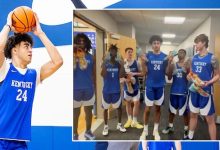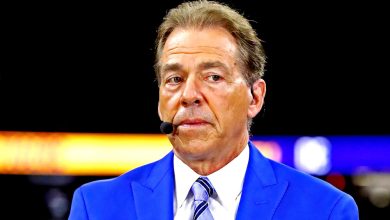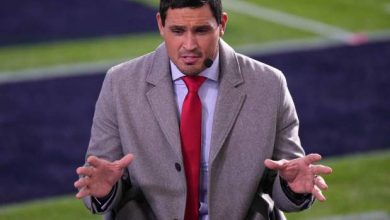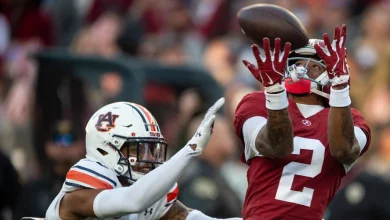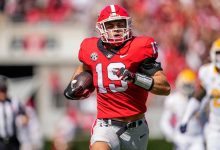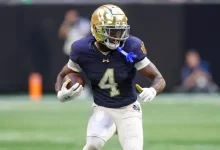Nico Iamaleava Leaves Tennessee Volunteers Wounded, Flees to UCLA Bruins for Financial Gain
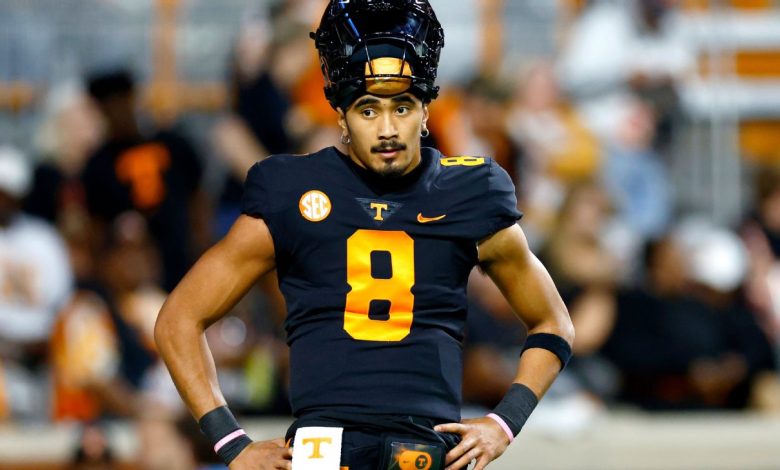
In a surprising and controversial move, Nico Iamaleava, once a highly-touted quarterback prospect for the Tennessee Volunteers, has left the program, transferring to the UCLA Bruins. The decision has left Tennessee fans, teammates, and the coaching staff stunned and feeling wounded, with many citing financial motivations behind the move. This article explores the background of Iamaleava’s time at Tennessee, the reasons behind his transfer, the impact on both programs, and the broader context of NCAA transfer policies and NIL (Name, Image, Likeness) dynamics that continue to reshape college athletics.
The Rise of Nico Iamaleava at Tennessee
Nico Iamaleava arrived at Tennessee amid high expectations. As a top quarterback recruit nationally, many saw him as a potential franchise player who could lead the Volunteers back to prominence in the highly competitive SEC. Tennessee’s coaching staff was enthusiastic about his talent and work ethic, and fans eagerly anticipated his development under the program’s guidance.
During his time at Tennessee, Iamaleava showcased flashes of his immense potential. His arm strength, mobility, and football IQ stood out in practice and limited game action. However, despite his promise, questions remained about his consistency and readiness to take on a starting role. Nevertheless, most expected that with time and development, he would become a cornerstone of Tennessee’s offense.
The Transfer Announcement: A Shock to the Volunteers Community
The news of Iamaleava’s decision to transfer to UCLA blindsided many in the Tennessee community. The move was not just a simple change of scenery; it was perceived as a betrayal by some fans and commentators, especially given the timing and circumstances.
Many felt Tennessee had invested in his development and that he had an obligation to stay and grow with the program. The fact that he chose to leave for UCLA, a Pac-12 program with significant financial resources and NIL opportunities, fueled the narrative that money was a key factor.
Financial Motivations and NIL Opportunities
The introduction of NIL rights in college athletics has drastically altered the landscape. Players can now profit from endorsements, sponsorships, and personal branding deals while still maintaining amateur status. For top prospects like Iamaleava, the potential financial benefits can be substantial.
UCLA, with its location in Los Angeles—a major media market—and extensive marketing reach, offers unparalleled NIL opportunities compared to many other programs, including Tennessee. Reports suggest that this financial advantage played a significant role in Iamaleava’s decision to transfer.
This development highlights a growing trend in college sports, where players weigh not only athletic and academic considerations but also the potential for personal financial gain when choosing programs.
Impact on Tennessee Volunteers
Iamaleava’s departure leaves Tennessee in a challenging position. The Volunteers now must adjust their quarterback plans, potentially accelerating the development of other players or seeking new recruits to fill the void.
For the coaching staff, the transfer represents a setback in their efforts to build continuity and chemistry on offense. It also raises questions about their ability to retain top talent amid the changing dynamics of college athletics.
Fans and analysts are divided—some sympathize with Iamaleava’s right to pursue his best interests, while others feel his departure undermines team unity and loyalty.
What Does This Mean for UCLA Bruins?
For UCLA, landing Nico Iamaleava is a coup. They add a talented quarterback who can compete for the starting job and potentially transform their offense.
The Bruins’ ability to attract high-profile transfers like Iamaleava signals their growing appeal and the advantages of their location and NIL infrastructure.
However, UCLA also faces the challenge of integrating Iamaleava into their system quickly and managing expectations, both for the player and the fanbase.
The Broader Transfer Landscape in College Football
Iamaleava’s transfer is part of a larger trend in college football, where the transfer portal has become a central feature of roster management. Players have more freedom than ever to move between programs, seeking better opportunities, playing time, or financial incentives.
This increased mobility benefits players but also creates instability for programs trying to build cohesive teams. Coaches must now balance recruitment with retention strategies and adapt to a more fluid player market.
NCAA Transfer Policies and Their Evolution
The NCAA has evolved its transfer policies in recent years, allowing players to transfer once without sitting out a season. This change has contributed to the surge in transfers like Iamaleava’s.
The goal is to give athletes more control over their careers, but it also means programs must prepare for more frequent roster turnover.
Ethical and Cultural Considerations
Iamaleava’s move sparks debate about loyalty, commitment, and the influence of money in college sports. Some argue that players should honor their commitments and develop within the program that recruited them.
Others contend that in an era of NIL and increased player empowerment, athletes have every right to seek the best situations for their personal and professional growth.
This tension reflects broader cultural shifts and challenges traditional notions of amateurism and team loyalty.
What’s Next for Nico Iamaleava?
At UCLA, Iamaleava faces the task of proving himself anew. He must earn the trust of his coaches and teammates, learn a new playbook, and compete for playing time.
If successful, he could revitalize his career and set himself up for future opportunities at the professional level.
Nico Iamaleava’s transfer from Tennessee to UCLA is emblematic of the evolving nature of college athletics in the NIL era. While his departure leaves Tennessee wounded, it also underscores the growing importance of financial and personal considerations for student-athletes.
As college sports continue to change, programs and players alike must navigate this new terrain with flexibility, understanding, and strategic vision.


